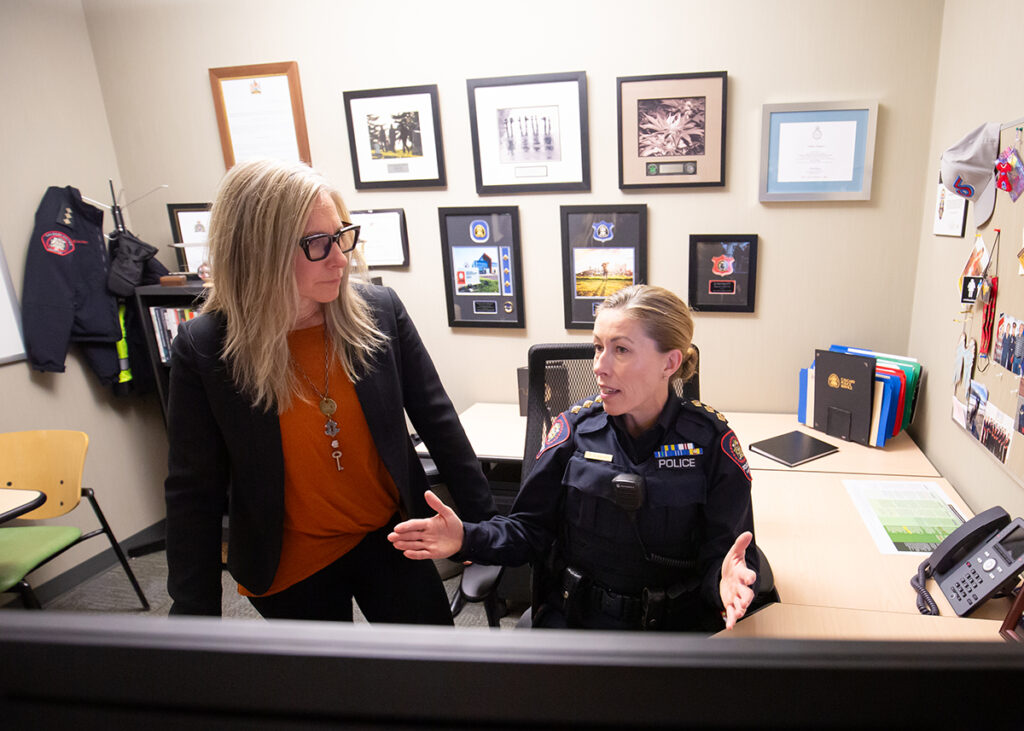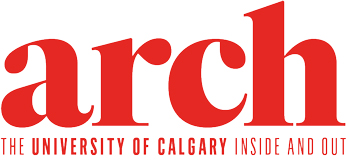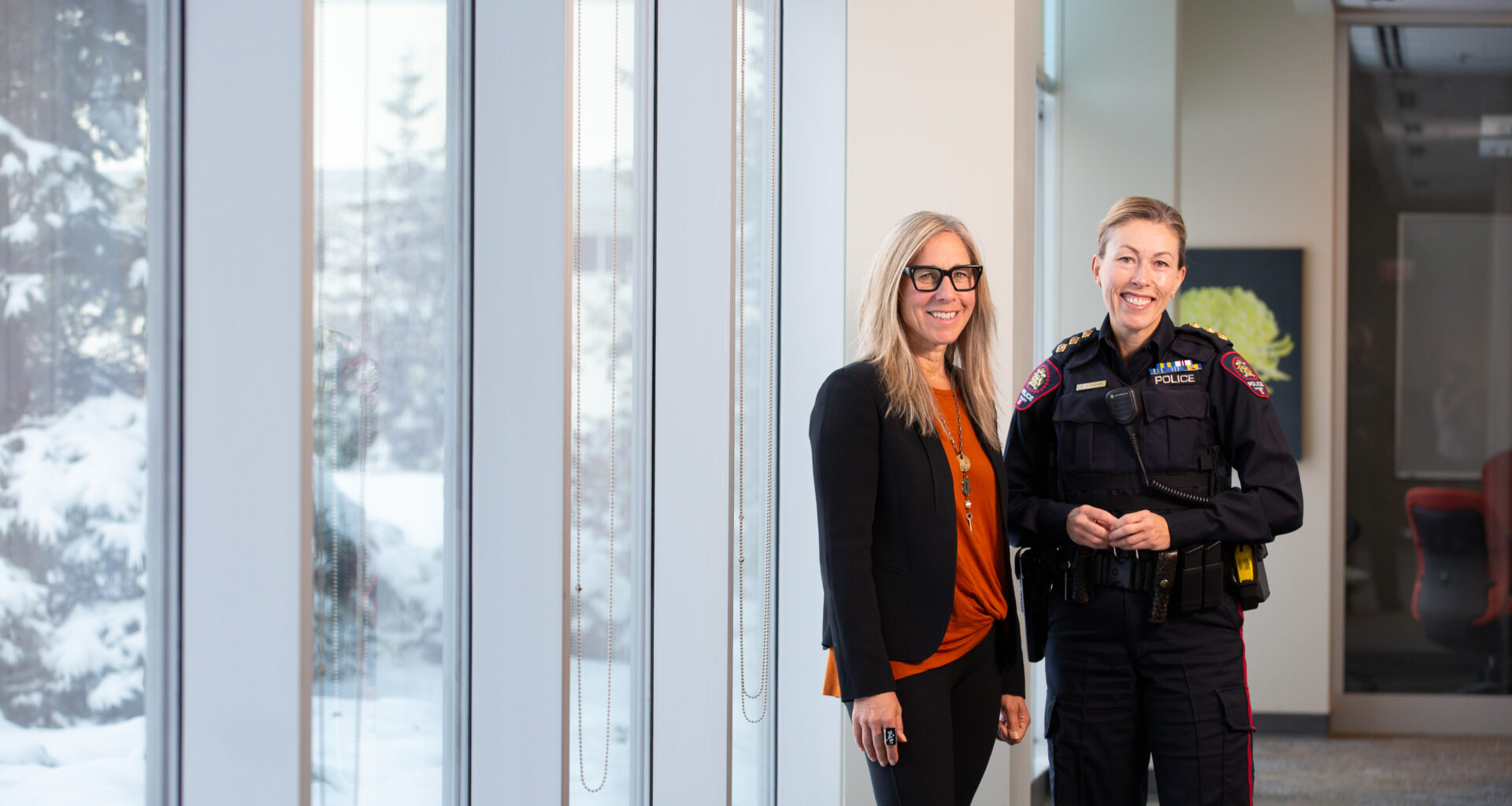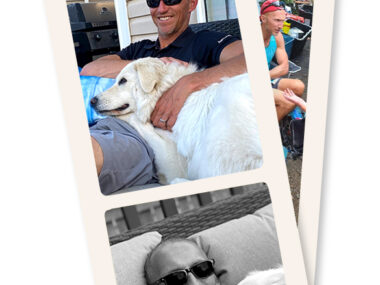Written by Jacquie Moore, BA ‘97
If you’ve ever added an eye-level Mars bar to your basket while waiting in line at the grocery store, or said yes to the “value” combo meal at a drive-thru, then you’ve participated in a form of behavioural science called “nudge theory.” Once regarded simply as the power of suggestion, nudge theory became a bona fide field of study when Dr. Richard Thaler, PhD, a behavioural economist, won the 2017 Nobel Prize for his work in advancing this area.
Whether we’re aware of it or not, we all experience nudges nearly every day — from parents trying to make veggies more appealing to their child to policymakers influencing our decisions about retirement savings. As defined by Thaler, nudge theory is, “any form of choice architecture that alters people’s behaviour in a predictable way without restricting options.” In other words, nudging is the process of influencing behaviour through small changes in information, affecting a person’s choice without taking away their agency to choose. As Thaler has said, “If you want somebody to do something, make it easy for them.”
A team of researchers led by Associate Professor Lana Wells in the University of Calgary’s Faculty of Social Work is drawing on principles of nudge theory to enhance gender equity in male-dominated workplaces, including a collaborative pilot with the Calgary Police Service (CPS). Developed by Shift: The Project to End Domestic Violence, which is a primary research lab situated within the faculty, the pilot initiative called Art of the Nudge (AOTN) is supporting the CPS to change the way it recruits, hires, communicates with, and develops current and future leaders to increase safety and belonging within the workplace.
The project is already demonstrating that an encouraging nudge can have a profound effect on changing behaviours.
Wells, who holds the faculty’s Brenda Strafford Chair in the Prevention of Domestic Violence, says the AOTN aims “to shift social norms by designing interventions in the physical, social and organizational environments, with the aim of mitigating bias, reducing harassment, and increasing inclusion and civility.” The project is already demonstrating that an encouraging nudge can have a profound effect on changing behaviours.
Nadine Wagner, BA’00 is inspector of the Chief Crowfoot Learning Centre for the CPS and has been a member of the service for more than two decades. She has had countless positive experiences in her work and has been championing many initiatives throughout her career to advance equity and belonging within the service. Wagner identified the need to approach culture change in a way that brought people into the conversation and address some of the barriers identified in previous initiatives.
Serendipitously, Wagner learned through a professor friend in the Faculty of Social Work about a research-based approach to navigating these issues and complex culture change, and she initiated a meeting with Wells.
“I heard about Shift’s research and the Nudge program that tries to improve social conditions in male-dominated workplaces through an adaptive-learning approach and I asked Lana how we could explore that in relation to policing,” she says. The Changing Contexts: Art of the Nudge approach was, and is, “the golden nugget we needed,” says Wagner.
Since 2020, Wells and Shift’s team, including lead designer Elizabeth Dozois, BA’87, MA’92, and evaluation lead Melissa Innes, MA’98, have worked with the executive team, and more recently engaged four units within CPS (they’ll eventually work with four more CPS settings as they are part of the pilot). They have worked to surface inequitable social norms and behaviours, and then work with key influencers within those settings to shift those norms through small social nudges.

“Paramilitary workplaces have unique contest masculinity cultures that often reinforce gender inequities and the normalization of violence, making these values and behaviours feel normal and natural,” says Wells. “Culture is the water we swim in and it’s often invisible and all-encompassing, making it particularly difficult to describe and change.”
This project, she says, helps participants to surface biases and inequitable processes and behaviours and then work together to design micro-interventions to spark change. “So, it’s not just one major intervention, but rather a cascade of small micro-interventions,” says Wells. “We are testing a social-norms-and-nudge approach throughout each workplace setting.”
Examples of the dozens of nudges the project has co-developed include changes to the colour, language and images of the CPS’ recruiting website to draw more women and diverse populations to the organization. They are also teaching members how to surface biases within themselves and identify strategies to disrupt harmful behaviours while promoting prosocial behaviours within their spheres of influence.
“We’ve taken time to understand the system and the specific work areas, form relationships, build trust, surface learning barriers and problematic processes and behaviours, and design interventions specific to each group we are working with,” says Wells. She and her team continue to work with the CPS units to co-develop evidence-informed nudges into their processes. In-depth conversation, focus groups and deeply respectful relationships inform the ongoing learning sessions and approach.
“The community has demanded a higher EQ in police officers, and we need to respond and evolve our processes to ensure a safe and inclusive organization.”
Calgary Police Chief Mark Neufeld is sold on the power of the nudge to spark lasting change.
“Through this partnership, we have seen a noticeable shift in how we engage with CPS members on the topic of equity, and the research-based acknowledgement that we all play a role through our everyday behaviours and actions in ensuring inclusion and belonging in our workplace,” he says.
Due to this partnership, Neufeld says he and his staff are seeing positive change in the Service’s recruitment-marketing approaches, training for their current and future leaders in how to address workplace harassment from an equity- and trauma-informed lens, and behavioural nudges to include a diversity of perspectives and experiences in organizational decision-making. “The approach taken through this partnership goes beyond policy and allows us to dig deeper into what really impacts the sense of belonging and inclusion for our members,” says Neufeld.
Wagner is also seeing transformation that, she says, “is allowing members to be more honest about their experiences, and it’s helping both men and women understand the impact of their behaviours.” She’s hopeful that, through the collaboration, psychological safety and mental well-being will improve across the board. “More and more members are talking about this research and it’s helping shift our culture.”
Wagner adds that such change is not only healthy, but imperative. “The community has demanded a higher EQ in police officers, and we need to respond and evolve our processes to ensure a safe and inclusive organization,” she says.
Neufeld is committed to, and optimistic about, the collective well-being of the CPS.
“Our hope is that all current and future CPS members feel supported to fully participate in the workplace, which means ensuring that we are actively being inclusive and celebrating the different lived experiences our members bring to the table,” he says. “Our partnership with the university exists alongside our comprehensive wellness programs that support our members who have chosen a career path that carries a great deal of responsibility.”
Officers, Neufeld says, “are placed in difficult situations daily, and we must continue to prioritize their well-being, just as they prioritize the well-being of the community we are privileged to serve.”




